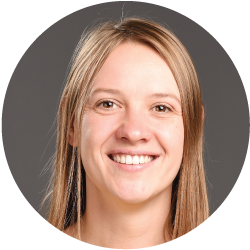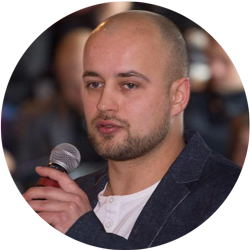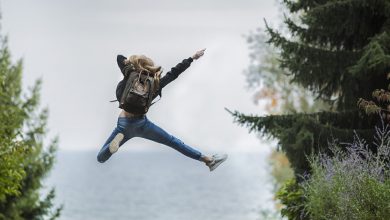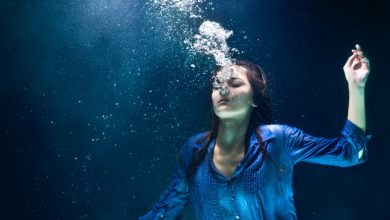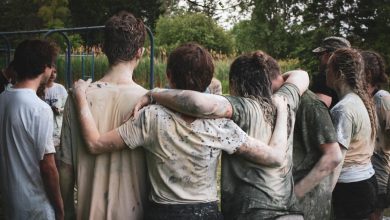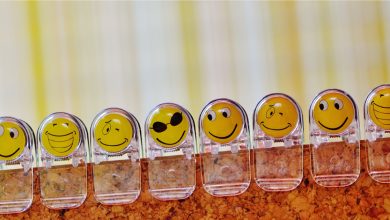Let’s make a choice
A huge responsibility for a trainer is to create a learning process using different types of methods and juggling with them. The role of the trainer then is partly to teach and partly to facilitate the learners to learn for themselves, from others. An important part of the trainer’s role is to be able to recognise barriers to learning, on the one hand, and spurs to learning on the other. In order to facilitate the carrying out of this role, the trainer needs to develop an understanding of how learners learn and how the learning process will be created.
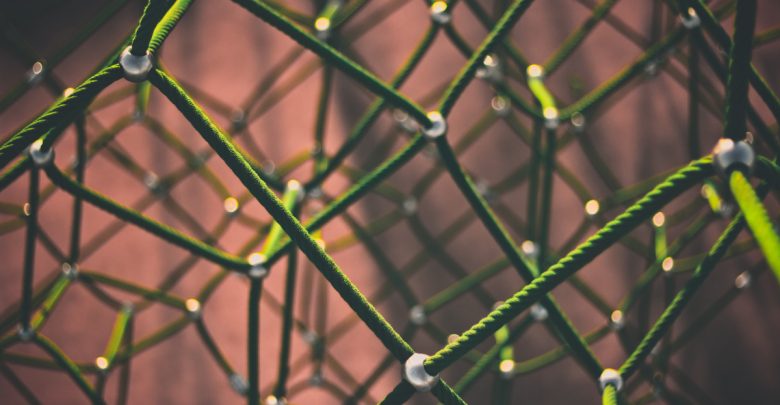
The most popular approach to the learning in youth trainings is the non-formal education and the appliance of its principles. It helps to design the training modules and to adapt, create a separate method for each training session.
Why did I choose this tool?
Non–formal education and its principles are more than methodology but I do believe in them and practice them.
How does this apply to being a trainer?
I do believe that non-formal education and its principles are the core and the main groundwork for the trainer. Knowing principles and why they are important helps the trainer to select a method and an approach in learning.
Main content:
NON-FORMAL EDUCATION
Non-formal education aims to:
- Develop a conscious personality, which can responsibly and creatively solve one’s own problems and the problems of the community. This way people will become active members of society and will have the necessary competences for leading a meaningful life;
- Develop a person’s ability to blend ideas with knowledge and skills and produce creative actions in the ever-changing environment;
- Enhance access to holistic education for the greatest possible number of educated people, through a variety of methodologies, means and conveyors.
The objectives of non–formal education are to:
- Develop critical thinking;
- Develop skills and apply them in personal, social and professional activities;
- Create conditions where each person can reveal themselves, know their talents and stretch themselves;
- Encourage openness, initiative, consciousness and independence;
- Help a person to understand the changing environment and to form a certain outlook.
Principles of Non-Formal Education
The principles of non-formal education that we provide here are a result of our personal constant understandings and reflections on work with youth groups. The principles were formulated by the Association of Non-Formal Education in Lithuania and we happen to be its active members.
These NFE principles basically coincide with the general principles of youth work, where free will is the basis of any process of non-formal education. It is only after we have implemented these principles, that we can expect young people to be conscious, proactive and involved.
Voluntary participation. The educated are free to choose a preferred conveyor and program of education, to participate in an activity based on their free will and choose the type of non-formal educative activity, its form and duration.
Specific environment. Non-formal education takes place in a specific environment, which has to have certain autonomy (separateness), so that people are safe to experiment and test themselves without any greater chance of harming themselves or others. It should also be an environment where people can take full responsibility for their actions. Even failure or an unjust decision can have negative consequences which could influence the rest of a young person’s life. It means that young people have to have a possibility to test themselves. Testing yourself enables you to collect more authentic experiences which is crucially important at this age.
Active participation in the learning process. People who take part in non-formal education reach certain results firstly through active participation. Activeness is achieved by devoting time to name and perceive one’s personal experience. If necessary, it can be achieved by creating artificial situations to acquire new experience and by providing theoretical material for active discussion and then creating conditions to ask questions and think of possibilities of application.
Holistic principle. This principle means adopting a holistic attitude towards people, educative goals and work methods. The attention is directed to a single person, the whole group and as well towards the subject, while neither feelings, mind or physiology are being ignored. The goal is to relate to experience gained during the educative process (to) in reality. Non-formal education combines emotional, physical and intellectual methods that ensure all-round development of a personality.
Learning through experience. The process of non-formal education is based on experience, which only becomes meaningful when it is well perceived and consciously realized. Therefore the experience is reflected on and named, conclusions are made and applied in real life (for a more detailed discussion on learning from experience refer to Kolb, D. A., 1983).
Open and non–formal communication. Non–formal education is a safe process, where people can be themselves by sharing their life experience, revealing their weak sides without fear of making mistakes and acknowledging them. It is also a space for learning from one’s mistakes and learning from each other, for the mutual growth of both educator and the learner.
Creating a non–competitive environment. The activity of non–formal education is an area where artificial competitive tension is highly avoided.
Competition is what drives contemporary society. Results like implementing a plan or a task are a constant demand. Young people are often required to do more than they are capable of, or encouraged to be seen as something they are not. But, when do they get a chance to just be themselves?
In order to meet the expectations of society (or adults) most young people learn to adapt and survive this way. However at the same time, they may hate this society and yet, sadly, they neither have the strength, nor the wish change it. Therefore non-formal education refuses artificial competition and formal control of results. The experience of the process is considered valuable by itself and can be treated as a result.
This principle allows creating a space where the participants are not compared to each other, but rather they can assess themselves and how far they have come in their desired way. Here the only comparison that can occur is the one where people compare themselves to themselves –who I was at the beginning of the educative process and who am I now at the end of the educative process? This process of internal maturity cannot be evaluated formally, because the results may not be visible straight away, but only after a certain amount of time has passed. (This amount of time is highly individual). Therefore we often speak about the results of NFE as well as the effects of NFE.
Group-oriented learning. A group in non-formal education serves as a means and as a particular model of society (mini-society). A group serves as a setting for solving interpersonal relations, making common decisions, sharing work and responsibilities. Individual learning also intensifies in a group.
The need for individual learning programmes in Western European countries rapidly increases. So far there has been very little discussion on this topic, and if there was, it was only about young people’s learning in voluntary service. We often speak about the education of volunteers, or work with volunteers. We agree that the task is long and requires consistency. Therefore, in our opinion, organizations that usually want to ‘harness’ young people but fail to devote resources and funds for their work with volunteers, engage in something which is definitely not youth non-formal education.
Those organizations that do engage in educating volunteers know how much effort, time and money this work requires. Apart from the individual learning, volunteer groups, group activities, seminars and meetings are being organized for working with volunteers. Spaces are being established, where groups of volunteers can reflect on their experience, learn from one another, solve difficult situations, assess personal growth and realize acquired competences.
EXPERIENTIAL LEARNING
Experiential learning focuses on the learning process for the individual. One example of experiential learning is going to the zoo and learning through observation and interaction with the zoo environment, as opposed to reading about animals from a book. Thus, one makes discoveries and experiments with gaining knowledge firsthand, instead of hearing or reading about others’ experiences. Likewise, in business school, internships and job-shadowing opportunities in a student’s field of interest can provide valuable experiential learning which contributes significantly to the student’s overall understanding of the real-world environment.
A third example of experiential learning involves learning how to ride a bike, a process which can illustrate the four-step experiential learning model (ELM). Following this example, in the “concrete experience” stage, the learner physically experiences the bike in the “here-and-now”. This experience forms “the basis for observation and reflection” and the learner has the opportunity to consider what is working or failing (reflective observation), and to think about ways to improve on the next attempt (abstract conceptualization). Every new attempt to ride is informed by a cyclical pattern of previous experience, thought and reflection (active experimentation).
Experiential learning can exist without a teacher and relates solely to the meaning-making process of the individual’s direct experience. However, though the gaining of knowledge is an inherent process that occurs naturally, a genuine learning experience requires certain elements. According to Kolb, knowledge is continuously gained through both personal and environmental experiences. Kolb states that in order to gain genuine knowledge from an experience, the learner must have four abilities:
- The learner must be willing to be actively involved in the experience;
- The learner must be able to reflect on the experience;
- The learner must possess and use analytical skills to conceptualize the experience; and
- The learner must possess decision making and problem-solving skills in order to use the new ideas gained from the experience.
Implementation
Experiential learning requires self-initiative, an “intention to learn” and an “active phase of learning”. Kolb’s cycle of experiential learning can be used as a framework for considering the different stages involved. Jennifer A. Moon has elaborated on this cycle to argue that experiential learning is most effective when it involves: 1) a “reflective learning phase” 2) a phase of learning resulting from the actions inherent to experiential learning, and 3) “a further phase of learning from feedback”. This process of learning can result in “changes in judgment, feeling or skills” for the individual and can provide direction for the “making of judgments as a guide to choice and action”.
Most educators understand the important role experience plays in the learning process. The role of emotion and feelings in learning from experience has been recognised as an important part of experiential learning.[17] While those factors may improve the likelihood of experiential learning occurring, it can occur without them. Rather, what is vital in experiential learning is that the individual is encouraged to directly involve themselves in the experience, and then to reflect on their experiences using analytic skills, in order to gain a better understanding of the new knowledge and retain the information for a longer time.
Reflection is a crucial part of the experiential learning process, and like experiential learning itself, it can be facilitated or independent. Dewey wrote that “successive portions of reflective thought grow out of one another and support one another”, creating a scaffold for further learning, and allowing for further experiences and reflection. This reinforces the fact that experiential learning and reflective learning are iterative processes, and the learning builds and develops with further reflection and experience. Facilitation of experiential learning and reflection is challenging, but “a skilled facilitator, asking the right questions and guiding reflective conversation before, during, and after an experience, can help open a gateway to powerful new thinking and learning”. Jacobson and Ruddy, building on Kolb’s four-stage Experiential Learning Model and Pfeiffer and Jones’s five-stage Experiential Learning Cycle, took these theoretical frameworks and created a simple, practical questioning model for facilitators to use in promoting critical reflection in experiential learning. Their “5 Questions” model is as follows:
- Did you notice?
- Why did that happen?
- Does that happen in real life?
- Why does that happen?
- How can you use that?
These questions are posed by the facilitator after an experience, and gradually lead the group towards a critical reflection on their experience, and an understanding of how they can apply the learning to their own life. Although the questions are simple, they allow a relatively inexperienced facilitator to apply the theories of Kolb, Pfeiffer, and Jones, and deepen the learning of the group.
While it is the learner’s experience that is most important to the learning process, it is also important not to forget the wealth of experience a good facilitator also brings to the situation. However, while a facilitator or “a teacher” may improve the likelihood of experiential learning occurring, a facilitator is not essential to experiential learning. Rather, the mechanism of experiential learning is the learner’s reflection on experiences using analytic skills. This can occur without the presence of a facilitator, meaning that experiential learning is not defined by the presence of a facilitator. Yet, by considering experiential learning in developing course or program content, it provides an opportunity to develop a framework for adapting varying teaching/learning techniques into the classroom.
Recommended material and topics:
- Non-formal education: https://pjp-eu.coe.int/en/web/youth-partnership/non-formal-learning?inheritRedirect=true,
- Podcasts about e-learning https://www.elearninglearning.com/elearning/learning-styles/podcasts/ ; http://trainingtoday.blr.com/article/most-effective-training-techniques/
- Non-formal education and its principle; URL
- Watch a video about non-formal education: https://www.youtube.com/watch?v=wz5P4Xx-qio
Reflection questions:
Do you recognize the mentioned methodologies and learning principles?
How do you apply them now or how would you apply them in your training context?
Which methodologies do you prefer?
In which one you want to deepen your competency?
Exercises:
How to apply it in everyday life:
The aim of the exercise: to understand the learning process and different styles of learning
Content:
- Think about the last learning experience you had. Preferably write it down (several sentences are enough). For example: you learnt how to cook a cake or you learnt another language or how to use a special IT programme.
- Analyze your learning experience. 1. What was the aim of your learning? 2. How did you learn?
- Identify learning ways and methods
- For example: you watched an online tutorial; read a book; asked a friend for some tips, recommendations; started to do it without any preparation and etc.
- Give it a score from 1 to 5, each method you used for the learning, where 1 is the least efficient method to learn and 5 – it was the best method to learn in this case.
- Write down the reason for the scores you gave.
- Think about alternative methods for this learning. How you can learn the same thing/subject differently? If you want your friend to learn the same subject how would you teach him/her or how could you assist him/her for learning?
